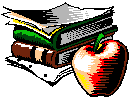 Rethinking
The Academy:
Rethinking
The Academy: Rethinking
The Academy:
Rethinking
The Academy:In point of fact, I would argue that members of university communities from deans to freshman and all staff members ought to learn how to deal with this new literacy. But the reality is that too many of us have too few hours to learn other technologies of writing than print, even if they are seen as valuable. Where they are not -- where browsing the Web is seen only as play -- scholars and administrators will allocate even less time for mastering reading skills.
Further, given any particular university's commitment to electronic and computer technologies, any given faculty member may lack access to a computer that will run Netscape, Internet Explorer, and other browsers.
However, we are not yet to the point where the ability to read hypertext is a given for educated individuals, in the way that the ability to read scholarly print journals is a given for graduates from an advanced degree program, especially for those interested in traditional ways of making scholarship.
The key to making this happen is simultaneously simple and complex - print bound members of the academy will learn to read hypertexts only when interesting and rigorous research is published in peer-reviewed journals only available in electronic form; when hypretext journals are a valued venue in which faculty members can continue their publishing careers.
Thus, scholarship must be published and/or disseminated on the web by faculty, students and staff who are willing to experiment with electronic ways of doing scholarship, and, having done so, to take the risk of seeing their work not count as serious scholarly activity. The decision to publish primarily in electronic venues is a serious one with major implications for tenure and promotion decisions.
Last Modified: August 2, 1996
Copyright © 1996 by Keith Dorwick